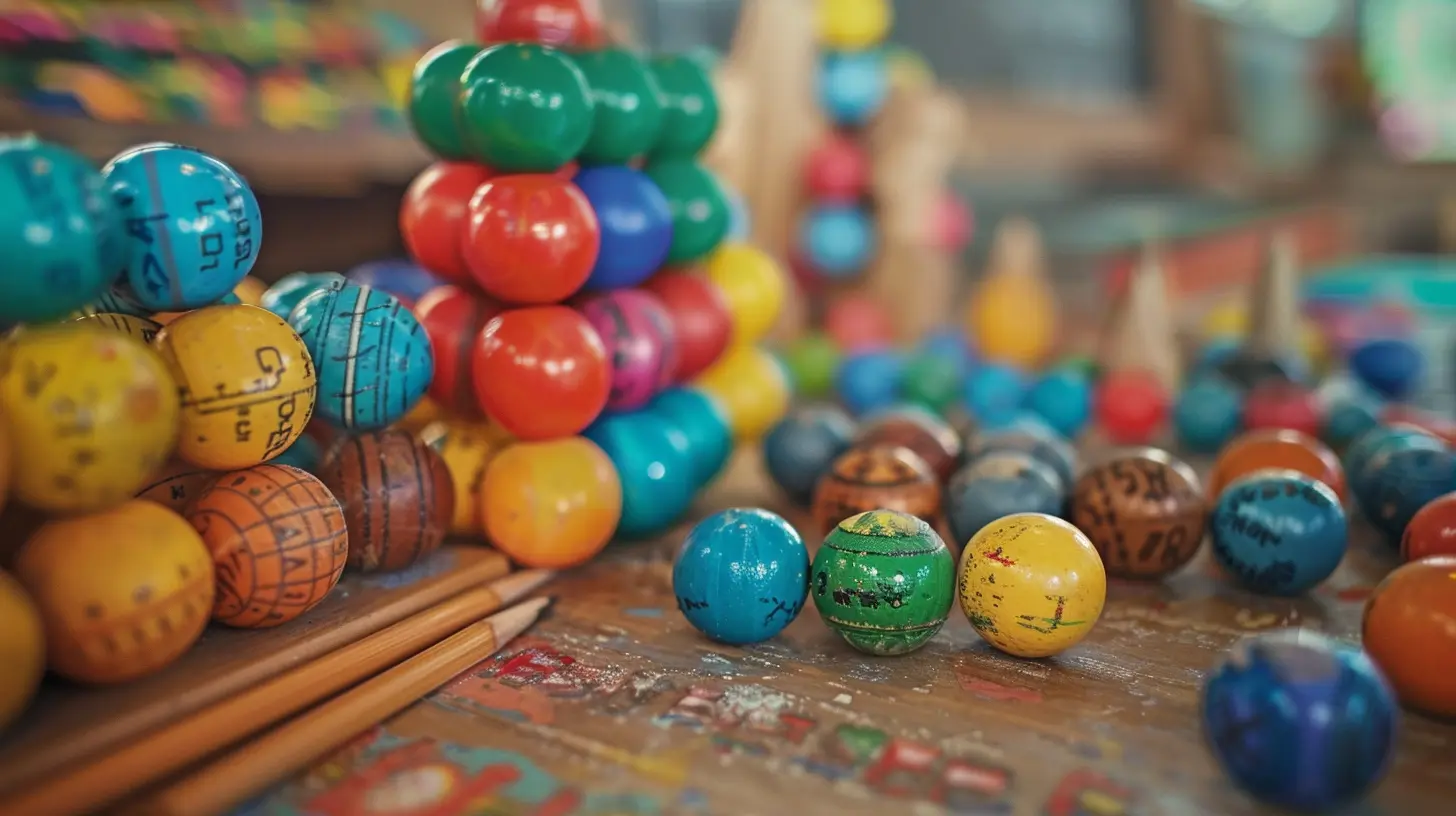How to Encourage a Love for Math at Home
10 June 2025
Let’s face it—math doesn’t always get the love it deserves. For many families, talking about math at home feels a bit like trying to get your kids to eat broccoli. It’s met with resistance, eye-rolls, or the classic “When will I ever use this in real life?” But here’s the thing: math is more than just numbers and equations. It’s about problem-solving, patterns, and seeing the world in a whole new way. And the secret to helping kids love math? It starts at home.
In this post, we’re going to break down how to encourage a love for math without turning your dining table into a pressure-filled classroom. It’s all about making math feel natural, fun, and a part of everyday life. So, grab a coffee and let’s dive in.
Why Does a Love for Math Matter?
Before jumping into the how, let’s quickly talk about the why.Math isn’t just for engineers and scientists. It’s for chefs, entrepreneurs, artists, and gamers. When kids feel confident with numbers, it boosts their problem-solving skills, critical thinking, and even decision-making abilities. Plus, math confidence can spill over into other areas—like reading, science, and tech.
Cultivating a positive attitude towards math early on can shape how children view challenges in general. If they believe math is “figure-out-able,” they’ll be more likely to approach life with a growth mindset. Pretty powerful, right?
Make Math Part of Everyday Life
The good news? You’ve already got a built-in math lab—your home. Seriously! Math shows up everywhere, and once you start spotting it, you’ll see it’s been hiding in plain sight.Cooking and Baking
Whipping up pancakes? That’s fractions in action! Doubling a recipe? Hello, multiplication! Measuring ingredients, setting timers, adjusting temperatures—it’s all math. And because it's hands-on (and possibly ends with cookies), kids are way more likely to engage.Tip: Ask your child to help you halve or double a recipe. Watch how proud they feel doing “grown-up” math.
Shopping and Budgeting
Whether it’s estimating the cost of groceries or figuring out discounts during a sale, shopping is a goldmine for practicing math. Give your child a budget and a list—let them be your mini-accountant.Activity Idea: Turn shopping into a game. “We have $10 to choose snacks for the week. What can we get without going over?”
Tell Time Together
Reading clocks, calculating time left until bedtime, or figuring out how long until their favorite show starts—it’s all math. Analog clocks, especially, are awesome for helping kids grasp time math.
Play Math Games (Yes, They Exist—and They’re Fun!)
Learning math doesn’t have to come from worksheets or flashcards (unless your kid loves those). There are tons of games that sneak in solid math practice.Board Games
Many classic board games are low-key math champs.- Monopoly involves counting money, making change, and strategic thinking.
- Yahtzee and Dominoes boost number recognition and probability.
- Uno is great for colors, numbers, and quick-thinking.
Card Games
A simple deck of cards can teach kids about odds, greater/less than, addition, and even multiplication.Try This: “War” becomes multiplication practice if each player must multiply their two drawn cards. Highest product wins!
Digital Fun
There’s no shame in screen time if it’s smart screen time. Look for interactive math apps or online games that turn learning into play.Some solid apps include:
- Prodigy
- Monster Math
- Moose Math
- Math Tango
Talk About Math Positively
This one takes a bit of self-awareness—especially if math wasn’t your favorite subject growing up. Kids pick up on how we talk about things. If we say, “I was never good at math,” they may think it’s okay to check out too.Instead, emphasize effort over natural talent. Say things like:
- “Math can be tricky, but we can figure it out together.”
- “You’re learning how to solve problems, and that’s awesome.”
- “Sometimes mistakes help us get better.”
Celebrate the process, not just the right answer.
Use Real-World Problems
Kids love to help—and giving them math tasks with a purpose ties numbers to meaning.Planning a Trip
Let them figure out how many hours it will take to drive somewhere. Ask how much gas you’ll need if you're averaging 30 miles per gallon and the trip is 120 miles. Boom—division, multiplication, and logical reasoning.Building Projects
Whether it’s LEGO or DIY furniture, measuring pieces, planning layouts, and following instructions are math in disguise.Sports Stats
If your child is into sports, math is all over the place. Scores, averages, percentages, win/loss ratios—it’s like a living math textbook.Read Math-Positive Books
Books about math? Yep, they exist—and they’re awesome.Some favorites:
- The Girl With a Mind for Math by Julia Finley Mosca
- Math Curse by Jon Scieszka
- Sir Cumference series by Cindy Neuschwander
- Bedtime Math series by Laura Overdeck
These stories bring math to life in silly, clever ways. They’re especially helpful for kids who love reading more than numbers.
Make Room for Mistakes
Math can be intimidating, especially when there’s pressure to “get it right.” But mistakes are part of learning. Encourage a safe space where your child can try, fail, and try again.You might say, “That’s an interesting way to solve it—let’s look at what worked and what didn’t.” It’s all about curiosity over correction.
Lead by Example
Kids notice everything. If you're crunching numbers for a budget or measuring for a home project, share the process. Let them see math as a useful, everyday tool—because it is.Even better? Share your learning process. If you’re figuring out how to calculate interest on your savings account, talk about it. “I didn’t know how to do this at first, but I looked it up and tried a few examples.”
It shows that learning never stops—and that’s a lesson far greater than any equation.
Celebrate Progress, Not Perfection
A little encouragement goes a long way. When your child solves a tricky problem or even just tries their best, celebrate it. High-fives, smiles, and simple affirmations fuel confidence.You might say:
- “You worked so hard on that. I’m proud of your effort.”
- “You didn’t give up! That’s what matters.”
- “You’re learning how to think like a mathematician.”
Remember, being good at math doesn’t mean being fast—it means being thoughtful and persistent.
Be Patient and Keep It Light
Some days, math might feel like a breeze. Other days, it might be a battle. That’s normal. Don’t stress if your child isn’t into math every single day. The goal isn’t perfection—it’s planting seeds.Think of it like watering a plant. You might not see growth right away, but over time, that love for math can blossom in the most unexpected ways.
Mix things up. Rotate activities. Try new apps. Keep the vibe playful and pressure-free.
Final Thoughts
Encouraging a love for math at home isn’t about drilling multiplication tables or turning your kitchen into a tutoring center. It’s about curiosity, connection, and creating a space where numbers feel exciting, not scary.By embracing everyday math moments, playing games, talking positively, and celebrating effort, you’re not just helping your child become better at math—you’re helping them build confidence, resilience, and a real love of learning.
You’ve got this. And who knows? You might just fall in love with math all over again, too.
all images in this post were generated using AI tools
Category:
Parent InvolvementAuthor:

Olivia Chapman
Discussion
rate this article
3 comments
Landon McKinley
Engage through playful learning.
June 20, 2025 at 3:51 AM

Olivia Chapman
Absolutely! Playful learning makes math enjoyable and fosters a deeper understanding.
Easton Green
What a delightful read! Encouraging a love for math at home can truly transform learning into a joyful adventure. With creative games and engaging activities, we can inspire young minds to embrace the wonders of numbers!
June 15, 2025 at 4:30 AM

Olivia Chapman
Thank you for your kind words! I'm thrilled to hear that you found the article inspiring. Engaging activities truly make learning math a joyful experience!
Veronica McGuire
Incorporate math into daily activities, use fun games, and celebrate small achievements to nurture a positive math experience at home.
June 10, 2025 at 11:49 AM

Olivia Chapman
Absolutely! Engaging with math through daily activities and games not only makes learning enjoyable but also builds confidence in young learners. Celebrating their progress further fosters a love for the subject.



